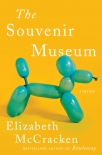An American Tragedy, Theodore Dreiser [best business books of all time txt] 📗

- Author: Theodore Dreiser
Book online «An American Tragedy, Theodore Dreiser [best business books of all time txt] 📗». Author Theodore Dreiser
The small company entered the yellow unprepossessing door and disappeared.
IIThat such a family, thus cursorily presented, might have a different and somewhat peculiar history could well be anticipated, and it would be true. Indeed, this one presented one of those anomalies of psychic and social reflex and motivation such as would tax the skill of not only the psychologist but the chemist and physicist as well, to unravel. To begin with, Asa Griffiths, the father, was one of those poorly integrated and correlated organisms, the product of an environment and a religious theory, but with no guiding or mental insight of his own, yet sensitive and therefore highly emotional and without any practical sense whatsoever. Indeed it would be hard to make clear just how life appealed to him, or what the true hue of his emotional responses was. On the other hand, as has been indicated, his wife was of a firmer texture but with scarcely any truer or more practical insight into anything.
The history of this man and his wife is of no particular interest here save as it affected their boy of twelve, Clyde Griffiths. This youth, aside from a certain emotionalism and exotic sense of romance which characterized him, and which he took more from his father than from his mother, brought a more vivid and intelligent imagination to things, and was constantly thinking of how he might better himself, if he had a chance; places to which he might go, things he might see, and how differently he might live, if only this, that and the other things were true. The principal thing that troubled Clyde up to his fifteenth year, and for long after in retrospect, was that the calling or profession of his parents was the shabby thing that it appeared to be in the eyes of others. For so often throughout his youth in different cities in which his parents had conducted a mission or spoken on the streets—Grand Rapids, Detroit, Milwaukee, Chicago, lastly Kansas City—it had been obvious that people, at least the boys and girls he encountered, looked down upon him and his brothers and sisters for being the children of such parents. On several occasions, and much against the mood of his parents, who never countenanced such exhibitions of temper, he had stopped to fight with one or another of these boys. But always, beaten or victorious, he had been conscious of the fact that the work his parents did was not satisfactory to others—shabby, trivial. And always he was thinking of what he would do, once he reached the place where he could get away.
For Clyde’s parents had proved impractical in the matter of the future of their children. They did not understand the importance or the essential necessity for some form of practical or professional training for each and every one of their young ones. Instead, being wrapped up in the notion of evangelizing the world, they had neglected to keep their children in school in any one place. They had moved here and there, sometimes in the very midst of an advantageous school season, because of a larger and better religious field in which to work. And there were times, when, the work proving highly unprofitable and Asa being unable to make much money at the two things he most understood—gardening and canvassing for one invention or another—they were quite without sufficient food or decent clothes, and the children could not go to school. In the face of such situations as these, whatever the children might think, Asa and his wife remained as optimistic as ever, or they insisted to themselves that they were, and had unwavering faith in the Lord and His intention to provide.
The combination home and mission which this family occupied was dreary enough in most of its phases to discourage the average youth or girl of any spirit. It consisted in its entirety of one long store floor in an old and decidedly colorless and inartistic wooden building which was situated in that part of Kansas City which lies north of Independence Boulevard and west of Troost Avenue, the exact street or place being called Bickel, a very short thoroughfare opening off Missouri Avenue, a somewhat more lengthy but no less nondescript highway. And the entire neighborhood in which it stood was very faintly and yet not agreeably redolent of a commercial life which had long since moved farther south, if not west. It was some five blocks from the spot on which twice a week the open air meetings of these religious enthusiasts and proselytizers were held.
And it was the ground floor of this building, looking out into Bickel Street at the front and some dreary back yards of equally dreary frame houses, which was divided at the front into a hall forty by twenty-five feet in size, in which had been placed some sixty collapsible wood chairs, a lectern, a map of Palestine or the Holy Land, and for wall decorations some twenty-five printed but unframed mottoes which read in part:
Wine is a mocker, strong drink is raging and whosoever is deceived thereby is not wise.
Take Hold of shield and buckler, and stand up for mine help. Psalm 35:2.
And ye, my flock, the flock of my pasture, are men, and I am your God, saith the Lord God. Ezekiel 34:31.
O God, thou knowest my foolishness, and my sins





Comments (0)